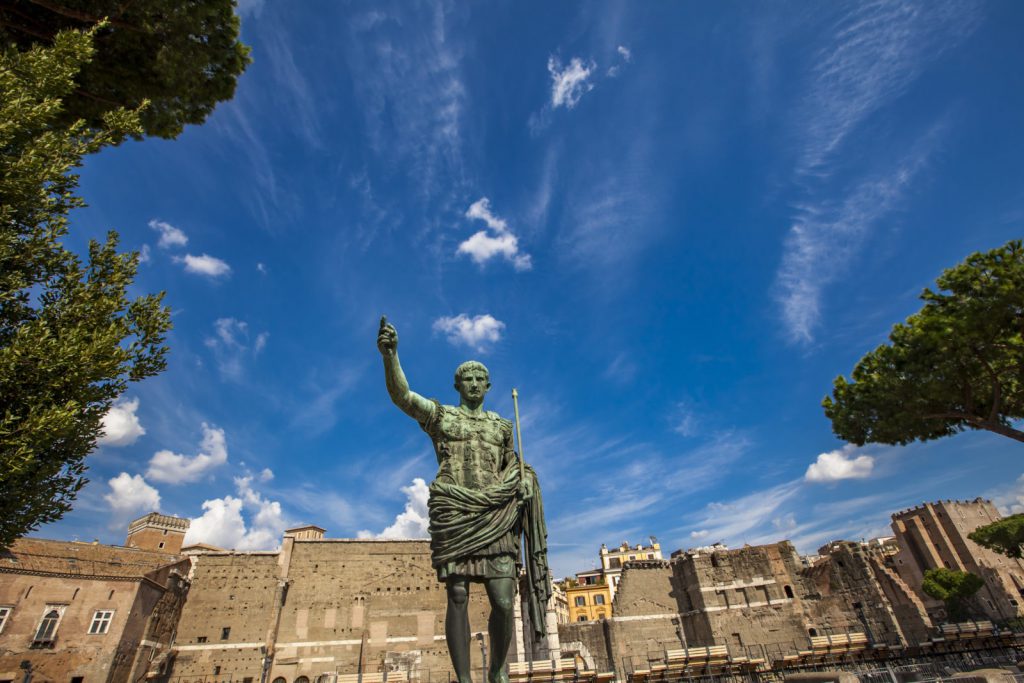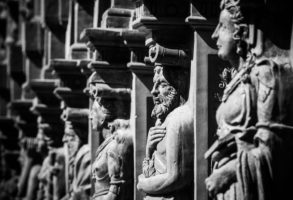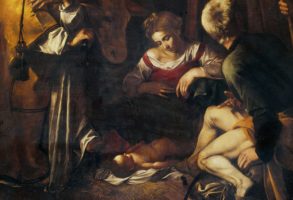
Published October 28, 2018
Sometimes the study of history is the study of moments—of situations in which individuals make pivotal decisions. Studying moments of this kind can help us to understand character and contingency.
Consider a familiar case, that of Julius Caesar as he stood on the north bank of the Rubicon in 49 b.c. deliberating whether to cross and march with his army upon his homeland. Rome allowed no weapons within the city limits and military action was restricted within the city walls. As Caesar gazed at the Rubicon, he knew that to cross the river would be to declare himself by his actions an enemy of Rome. Alea iacta est—“the die is cast”—he famously declared. In deciding to march on the city, he turned Julius Caesar the man into Caesar the imperial office; this moment stands as a symbol of the epochal downfall of the Roman republic and the start of the Roman empire.
Yet as important as that singular moment was, the crossing of the Rubicon was neither the sole cause of nor even the beginning of the republic’s fall. Indeed, the civil war precipitated by Caesar’s crossing was not even the first in Roman history. The fall began generations earlier, and Caesar was at least as much a product of the downfall that came before as he was the cause of what came after.
In The Storm Before the Storm: The Beginning of the End of the Roman Republic—first published last year and just out in paperback—Mike Duncan argues that “the political system Julius Caesar destroyed through sheer force of ambition certainly wasn’t healthy to begin with. Much of the fuel that ignited in the 40s and 30s b.c. had been poured a century earlier.”
Duncan, the historian behind the popular podcast The History of Rome, sets out to tell the story of how that fuel was poured out. As he notes, American readers should pay attention, for there is some reason to worry that the American republic, too, is on the path to Caesarism. But while some commentators would have today’s republicans believe that the Caesars have already arrived, Duncan posits that America, if it is in decline at all, is somewhere on the Roman timeline between conquering threats on the Roman borders (which corresponds to America’s conquest of the twin threats of communism and fascism) and the period of the great Roman civil wars.
Indeed, the parallels between America and the Roman republic do not stop there. In Duncan’s telling, the rift that would eventually tear apart the republic began with concerns that should be quite familiar to American readers: rising income inequality due to an influx of foreign money and cheap labor (which in Roman times meant slavery) and factional divisions between populists and establishment senators. As the populist tribunes and establishment senators attempted their respective reforms to deal with the “economic and social dislocation” of the Roman citizenry—as well as the question of whether to enfranchise thousands of Italians not considered Roman citizens—the gap between their factions widened, leading to the gradual breakdown of Roman custom. The ultimate expression of this was the murder of Julius Caesar by a group of Roman senators in 44 b.c.—about a century after the beginning of Duncan’s tale.
This breakdown began with the 133 b.c. murder of Tiberius Gracchus, a young firebrand tribune who attempted to reform land ownership laws in Rome. Gracchus was the first public official to be murdered in a public space in Rome. To make matters worse, after the mob, led by the leader of the Senate, killed Gracchus, his body was dumped into the Tiber. He was thus denied a funeral and the rituals of death that were the inheritance of any Roman citizen. Although it took a hundred years to move from Tiberius Gracchus’ murder to Julius Caesar’s, the link is clear: Transgression of sacred boundaries that protect spaces of public assembly led eventually to the breakdown of political order.
Politics in a republic is an achievement. The mere fact of elections, public offices, and public assembly does not mean there is a true political life. All political conduct in a republic depends on a common reverence for the forms and norms and procedures of public life—including the institution of public assembly. Where disrespect or disregard for the form of political life exists, fundamental breakdown is likely to follow.
The history of the gradual decline of the Roman republic demonstrates how precarious political institutions are, and how much care they require. That care ultimately rests on the recognition by all involved in common political life that honoring one’s fellow citizens means honoring the forms of politics—the forms of assembly in which deliberation, discourse, and decision take place.
It is fitting that Julius Caesar’s deliberation before marching on Rome, which led to imperial rule, was undertaken alone rather than in common with his fellow citizens. Roman history offers a warning for Americans as our republic today navigates its own tremors and convulsions. The treasure to be guarded, in the idiom of The Federalist, is the reflection and choice embodied in common assembly. There can hardly be a better way of learning about the costs of losing that treasure than reading Mike Duncan’s history of Roman decline.
Ian Lindquist is a visiting fellow at the Ethics and Public Policy Center.




